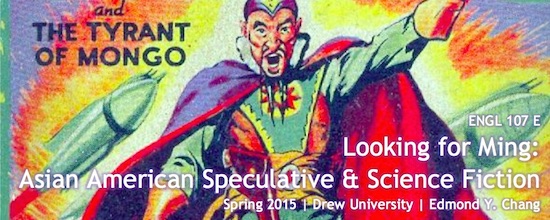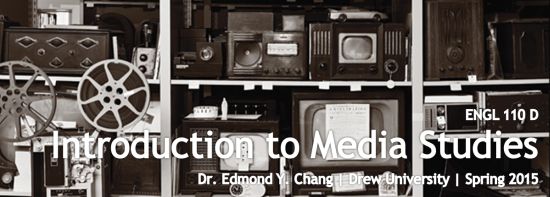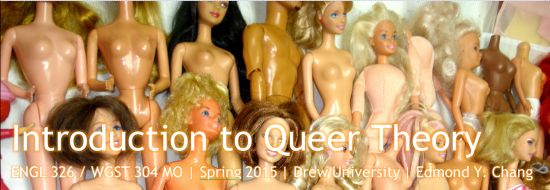Here are my Spring 2015 courses at Drew University:
ENGL 107 E: Asian American Literature
“Looking for Ming: Asian American Speculative & Science Fiction”
MW 10:50 AM-12:05 PM
Seminary Hall 109
WHAT DOES IT MEAN to “study of the writers in the Asian American literary tradition…in light of their historical time and place, major themes, conclusions about the nature of Asian experience in the United States and their contributions to this literary tradition and to the American literary canon?” And even more difficult, how might we consider the fields, formations, and possibilities of “Asian American Literature” through science fiction or speculative fiction? Betsy Huang argues in Contesting Genres in Contemporary Asian American Literature that “science fiction affords Asian American writers a unique way to engage in subversive political and ideological critique not by contravening genre conventions, but by using them to rewrite the rules of the genre.” This class, then, will explore the intersections of literature, genre, media, popular culture, race, gender, sexuality, class, bodies, and technology. Texts may include Flash Gordon, Sax Rohmer, Robert Heinlein, Toshio Mori, Star Trek, The Green Hornet, Laurence Yep, S.P. Somtow, Amy Tan, Ted Chiang, Larissa Lai, Greg Pak, Alice Sola Kim, Yoon Ha Lee, Ken Liu, and others.
ENGL 110 D: Introduction to Media Studies
“Page, Wave, Screen, Circuit”
TuTh 9:25-10:40 AM
BC 120
HENRY JENKINS, media scholar and professor, argues, “Most often, when people are asked to describe the current media landscape, they respond by making an inventory of tools and technologies. Our focus should be not on emerging technologies but on emerging cultural practices. Rather than listing tools, we need to understand the underlying logic shaping our current moment of media in transition.” In other words, to better understand media–from writing to gaming–is to understand not only the mediums themselves but our relationship to and with those mediums. This course then offers an overview of the history, technological changes, and cultural and critical significance of contemporary media, including print, electronic media (radio, television, film), and digital (“new”) media (internet, social media, mobile media, digital games). We will explore the forms and function of media, media and its relationship to information and communication, and the intersections of media and culture.
ENGL 326 MO: Approaches to Literature: Cultural / WGST 304 MO: Advanced Studies in Sexuality and Literature
“Introduction to Queer Theory”
TuTh 4:30-5:45 PM
BC 217
DRAWING INSPIRATION from Raymond William’s influential Keywords: A Vocabulary of Culture and Society and Bruce Burgett and Glenn Hendler’s Keywords for American Cultural Studies, this “approaches” class will identify and explore some of the key concepts, moves, and key terms of the interdisciplinary fields that make up LGBT studies and queer theory. Topics, themes, methods, and lines of inquiry will include:
• histories of sexuality and sexual identity;
• the politics of identity, embodiment, and desire;
• heterosexism, homophobia, transphobia, normativity, and other forms of oppression;
• queer resistance, activism, liberation, and worldmaking;
• intersectionality with race, gender, class, family, religion, ability, and nation;
• and finally, queer temporalities, spaces, and technologies.
THROUGH THE LENSES of literature, scholarship, new and old media, and popular culture, our class will trace and trouble theoretical and everyday understandings of LGBT and Q terms, figures, bodies, and experiences. Williams argued, “I have emphasized this process of the development of Keywords because it seems to me to indicate its dimension and purpose. It is not a dictionary or glossary of a particular academic subject. It is not a series of footnotes to dictionary histories or definitions of a number of words. It is, rather, the record of an inquiry into a vocabulary: a shared body of words and meanings…” This class therefore is all about reading, thinking, writing, and contributing to queer theory’s shared body of words, ideas, and theories.


